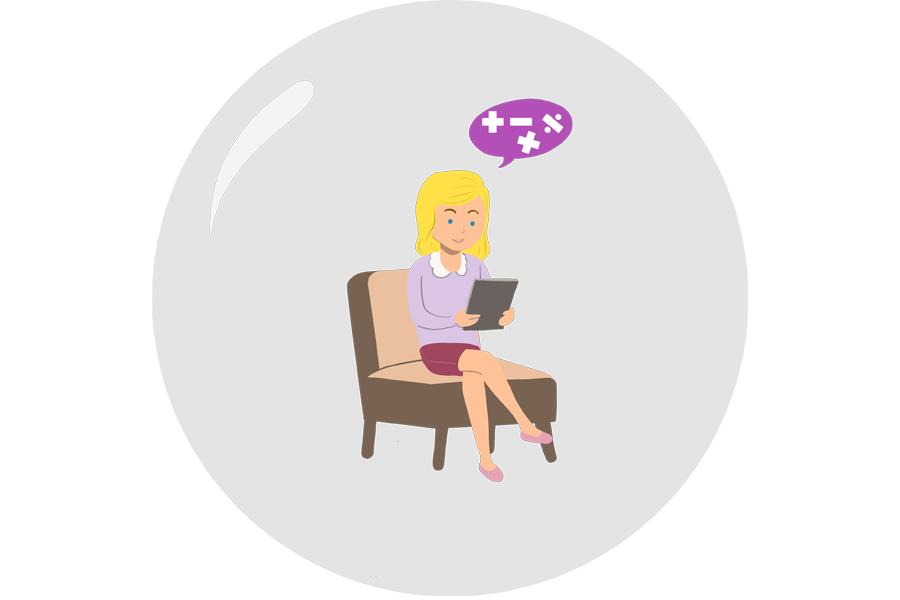Math (Grade 1 to 8)
May 29, 2020 2022-06-10 4:46Math </br>(Grade 1 to 8)
Grade 3
Mathematics (CBSE – NCERT)
Geometry
Shapes & Spatioal Understanding
- Creates shapes through paper folding, paper cutting.
- Identifies 2-D shapes
- Describes the various 2-D shapes by counting their sides, corners and diagonals.
- Makes shapes on the dot-grid using straight lines and curves.
- Creates shapes using tangram pieces.
- Matches the properties of two 2-D shapes by observing their sides and corners (vertices).
- Tiles a given region using a tile of a given shape.
- Distinguishes between shapes that tile and that do not tile.
- Intuitive idea of a map. Reads simple maps (not necessarily scaled)
- Draws some 3D-objects.
Numbers
Number sequence upto 1000
- Reads and writes 3-digit numbers.
- Expands a number w.r.t. place values.
- Counts in different ways – starting from any number.
- Compares numbers.
- Forms greatest and smallest numbers using given digits.
Addition and Subtraction
- Adds and subtracts numbers by writing them vertically in the following two cases:
- without regrouping.
- with regrouping.
- Uses the place value in standard algorithm of addition and subtraction.
- Solves addition and subtraction problems in different situations presented through pictures and stories.
- Frames problems for addition and subtraction facts.
- Estimates the sum of, and difference between, two given numbers.
Multiplication
- Explains the meaning of multiplication (as repeated addition).
- Identifies the sign of multiplication.
- Constructs the multiplication tables of 2, 3, 4, 5 and 10
- Uses multiplication facts in situations.
- Multiplies two digit numbers using standard algorithm and Lattice multiplication algorithm.
Division
- Explains the meaning of division from context of equal grouping and sharing.
- Relates division with multiplication.
- Completes division facts:
- by grouping
- by using multiplication tables.
Mental Arithmetic
- Adds and subtracts single digit numbers and two digit numbers mentally.
- Doubles two digit numbers mentally (result not exceeding two digits). Money (5 hrs.)
Money
- Converts Rupee. to Paise using play money.
- Adds and subtracts amounts using column addition, and subtraction without regrouping.
- Makes rate charts and bills.
Measurement
Length
- Appreciates the need for a standard unit.
- Measures length using appropriate standard units of length by choosing between centimetres and metres.
- Estimates the length of given object in standard units and verifies by measuring.
- Uses a ruler
- Relates centimetre. and metre.
Weight
- Weighs objects using non standard Units.
- Appreciates the conservation of weight.
Volume
- Measures and compares the capacity of different containers in terms of non-standard units.
- Appreciates the conservation of volume.
Time
- Reads a calendar to find a particular day and date.
- Reads the time correct to the hour.
- Sequences the events chronologically.
Data Handling
- Records data using tally marks.
- Collects data and represents in terms of pictograph choosing appropriate scale and unit for display through pictographs.
- Draws conclusions from the data by discussing with the teacher.
Patterns
- Identifies simple symmetrical shapes and patterns.
- Makes patterns and designs from straight lines and other geometrical shapes.
- Identifies patterns in the numerals for odd and even numbers and in adding odd and even numbers.
- Partitions a number in different ways.
- Identifies patterns in his surroundings
- Identifies patterns in multiplication with, and dividing by 10s.




